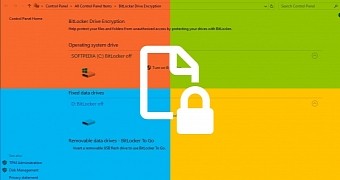At the end of 2015, it came to light that Microsoft was hoarding everyone's encryption keys for Windows 8, 8.1 and 10 devices, and storing them on its servers.
The revelation came to light thanks to an investigation of The Intercept, the same news agency which became famous after publishing the vast majority of Edward Snowden's NSA-related documents.
Reporters discovered and confirmed with Microsoft that the company was shipping devices with disk encryption turned on by default, and was automatically uploading this encryption key to a user's OneDrive account if he ever logged in on the device using his Microsoft account.
While not everybody uses their Microsoft credentials to log in on his laptop, some people had no way of turning this feature off, more precisely those using Windows Home editions. For people using the Pro and Enterprise editions, there's a guide on how to disable this behavior.
Did Microsoft ever help the FBI, NSA, or other US agency?
But Microsoft's somewhat questionable method of gathering these disk encryption keys is not the problem. The issue, in context of the recent FBI vs. Apple standoff, is if Microsoft has ever caved in to a law enforcement agency's request and released any of these encryption keys so investigators could unlock a suspected criminal's device.
In an email to Lorenzo Franceschi-Bicchierai, reporter for Vice, the Redmond company has said that until now they have not provided any customer disk encryption key to any law enforcement agency.
This doesn't mean that the company won't provide one if law enforcement agents produce a warrant, which most companies do honor, including Apple.
Unless law enforcement agencies make outrageous requests for universal encryption keys in their products, most companies would have no problem abiding with these requests. It's just surprising that Microsoft hasn't been contacted until now, especially if we take into account the company's huge OS market share.

 14 DAY TRIAL //
14 DAY TRIAL //